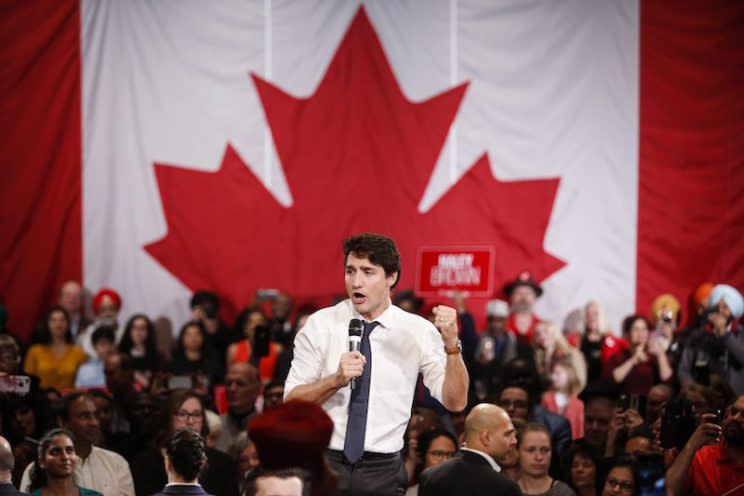Trudeau's Liberals see sharp drop in poll numbers, CBC reports

The honeymoon appears to be over for Prime Minister Justin Trudeau and his Liberal party.
CBC’s poll analyst Éric Grenier reports the Liberals plummeted 6.8 points in the polls over the past three months, bringing them down to their lowest levels of support since the 2015 federal election. This drop has instantly boosted the Conservatives and the New Democrats, who are still trying to find their feet as each party searches for a new leader following crushing election losses.
The numbers provided by CBC shows the Liberals sitting at 40.5 per cent support (down 6.8 per cent), the Conservatives at 31.8 per cent (up 3.5 per cent) and the NDP at 15.6 per cent (up 2.3 per cent). The Greens and the Bloc Québécois are polling at 5.4 per cent and 4.8 per cent, respectively. These numbers are being compared to poll averages provided in the previous quarter.
The Liberals had been consistently polling at 46 to 47 per cent support in 2016, Grenier reports.
But it’s not all bad news for the Grits. They still hold massive double-digit leads in Atlantic Canada (35 per cent higher than the Conservatives) and Quebec (beating the Bloc by 26.5 per cent). Even with less support today, they still have as much as they had when they won a majority government. In October 2015, the Liberals received 39.5 per cent of the electoral vote.
While Grenier notes Liberal support is down across the country, it appears to be especially alarming in Ontario and British Columbia, where Trudeau’s team has dropped more than 7 per cent in the polls. In Canada’s most populous province, nearly all of that support has shifted to the Tories, who are receiving exceptional numbers in Alberta with a whopping 60 per cent support.
So what’s behind the change of heart for many Canadians polled across the country? Perhaps it’s the federal government’s decision to support the construction of two new pipelines, or maybe it’s the broken campaign promise of electoral reform. More recently, the influx of migrants illegally crossing into Canada from the U.S. has also made headlines with little response from the federal government, despite a request for help from Manitoba’s premier.
Whatever the reason for the dip, it’s clear support is waning for the Liberals, even with the prime minister travelling across the country to meet with constituents. With five byelections set to take place on April 3, the time is now for political parties to seize the opportunity to boost their representation in Ottawa.



